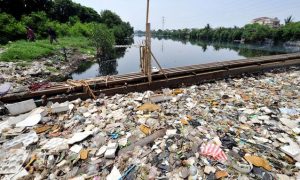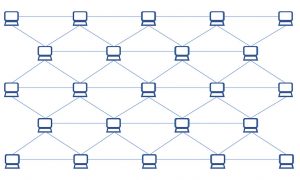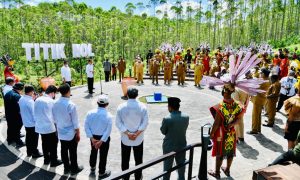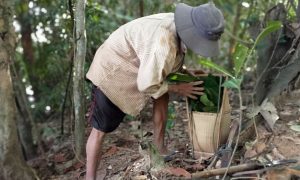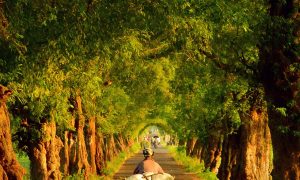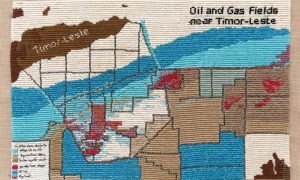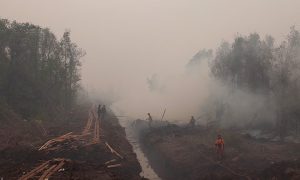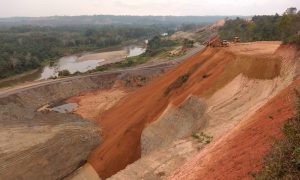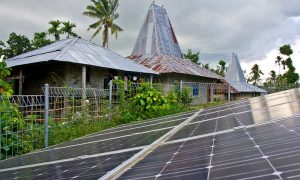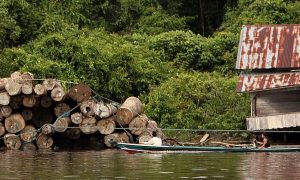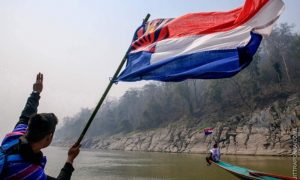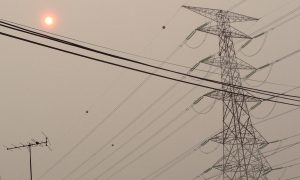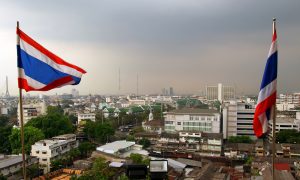River pollution is not only a result of overwhelming waste, but a problem of resource capture across all levels of governance.
Profile: Patrick Anderson’s career in environmental and human rights movements
Working in solidarity globally and at the intersection of environmental protection and human rights.
Blockchain against climate change: perspectives from Indonesia
In Indonesia blockchain can be strategically utilised and developed for environmental protection.
A new capital city for who? Central-local tensions in Indonesia
A lack of coordination between state actors and a lack of acknowledgment between state and society undermines the new capital project.
Campaigns, criminalisation and concessions: indigenous land rights in Cambodia
All Cambodians suffer from natural resources exploitation, but indigenous peoples' social, cultural and economic ties are deeply ingrained in forests
Hari Tani Nasional: A forum hosted by the ANU Indonesia Institute
What are the most important policy problems facing rural Indonesia, and what can researchers do about them?
Palm Oil: the Grease of Empire by Max Haiven (review)
How can one come to understand palm oil as always both local and global, without offering primacy to one and diminishing the other?
RISE 2: Considerations of saltwater, fish, mangroves & people, oil & plastic
From remote Torres Strait to mega-cities like Jakarta, enforced climate refugee status continues to increase.
“Building Back Better” than what? Lessons in Indonesia after volcanic eruptions
The Sendai Framework lays out clear actions to reduce disaster risk. But how effective is it?
Human rights in the age of Southeast Asian extractivism
Analysing the development of Filipino, Thai and Indonesian laws and policies for the achievement of the human right to a healthy environment.
Hydro-power projects and cultural rights for Bunong communities in Cambodia
The LSS2 dam blocked 2 of the Mekong River Basin's largest rivers, with serious social, economic and cultural impacts.
In Indonesia, Sumatra’s coal brings more harm than good
The coal sector is strongly linked to national and regional oligarchs, and coal businesses often play a role as financiers for political candidates.
Indonesia’s geopolitical future needs robust climate action
Equipping activism with a geopolitical angle might prove useful, giving environmentalism a base in foreign policy and economic nationalism.
New Mandala and environmental justice in 2022 – call for submissions
New Mandala invites submissions on the most pressing environmental justice issues in the Southeast Asia.
Countering climate collapse: the Spring Revolution must centre indigenous voices
In the midst of the Spring Revolution, new opportunities arise for climate justice.
Misinformation & government inaction fuel vaccine hesitancy in the Philippines
95% of hundreds of thousands of internally displaced people in resettlement sites built after Typhoon Haiyan in 2013 are not vaccinated.
Conservation of Timor-Leste’s world-class marine ecology is not being taken seriously
Teeming with the greatest fish species biodiversity on the planet, these seas are under threat from large and small scale illegal fishing compounded by lax law enforcement.
Nationalist rhetoric is impeding climate action in Indonesia
Indonesia's environmental policies are at odds with the rhetoric around palm oil production and Indonesians are not equipped with enough information to understand the risks of a changing climate.
‘Green Islam’: Islamic environmentalism in Indonesia
Indonesia promises a future of Quran-inspired sustainability and renewables but is constrained by fossil fuel interests in government.
Warming to climate change
Can the new climate change ministry navigate the complex politics of competing interests when tackling the threats of extreme weather? Or is an independent commission answerable to Parliament needed to hold the government to account?
 Facebook
Facebook  Twitter
Twitter  Soundcloud
Soundcloud  Youtube
Youtube  Rss
Rss 